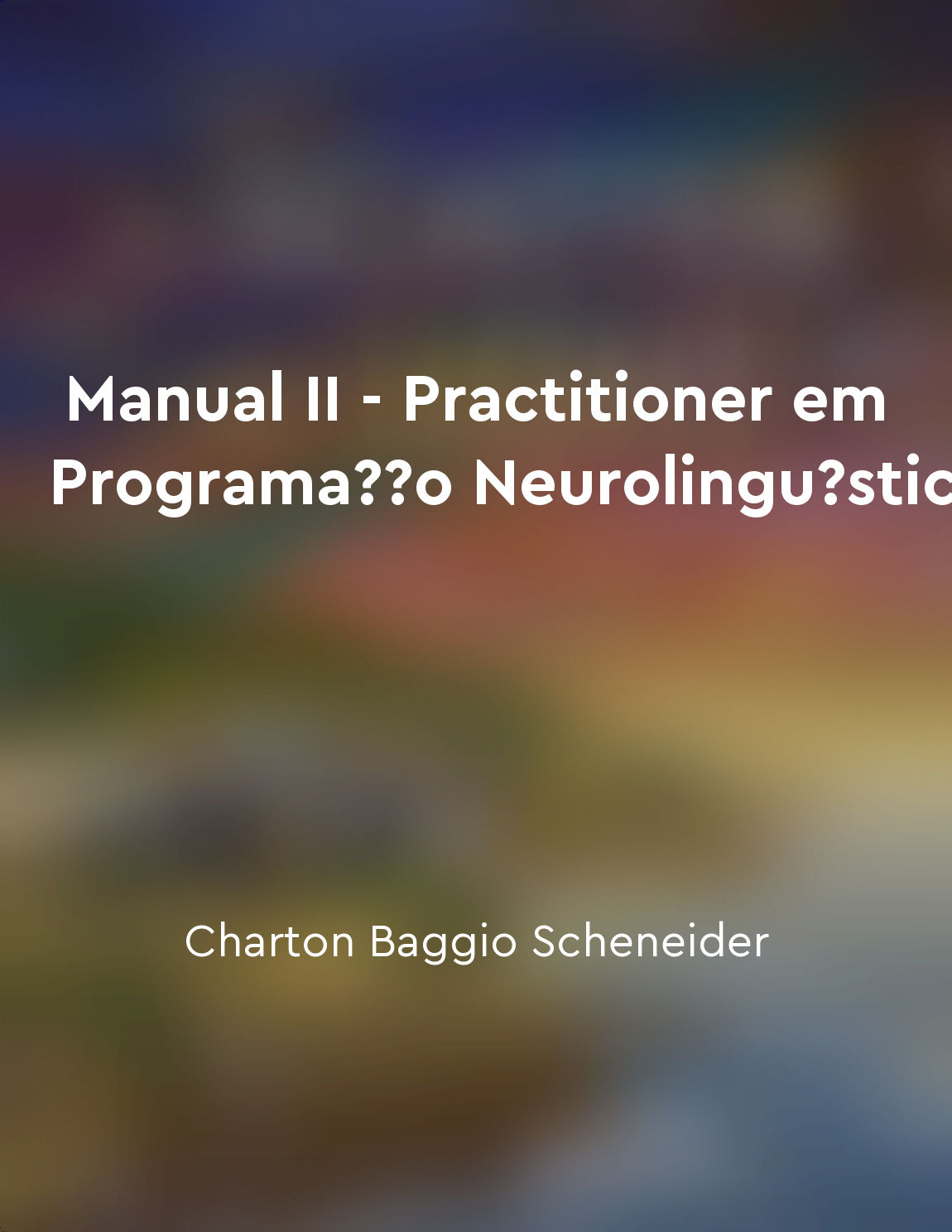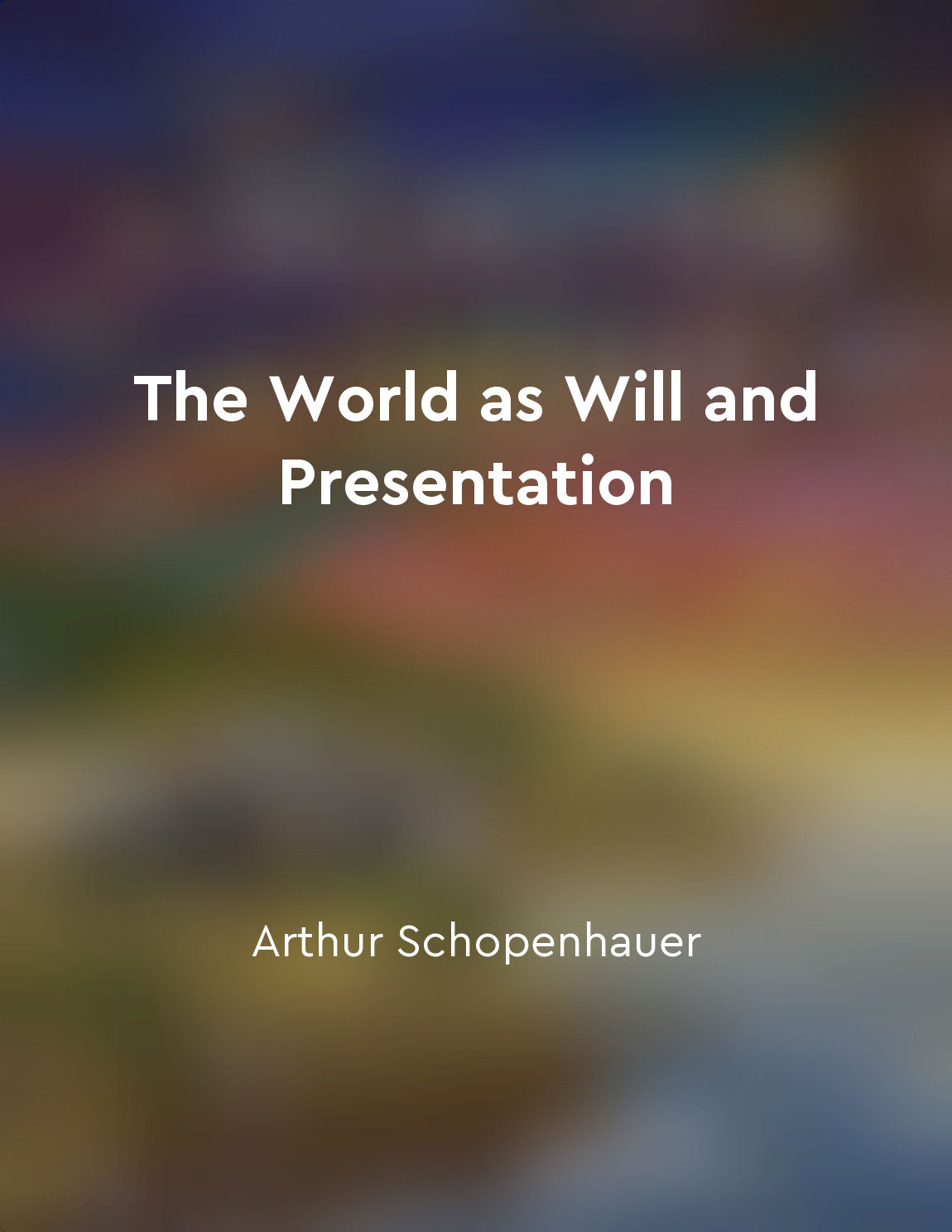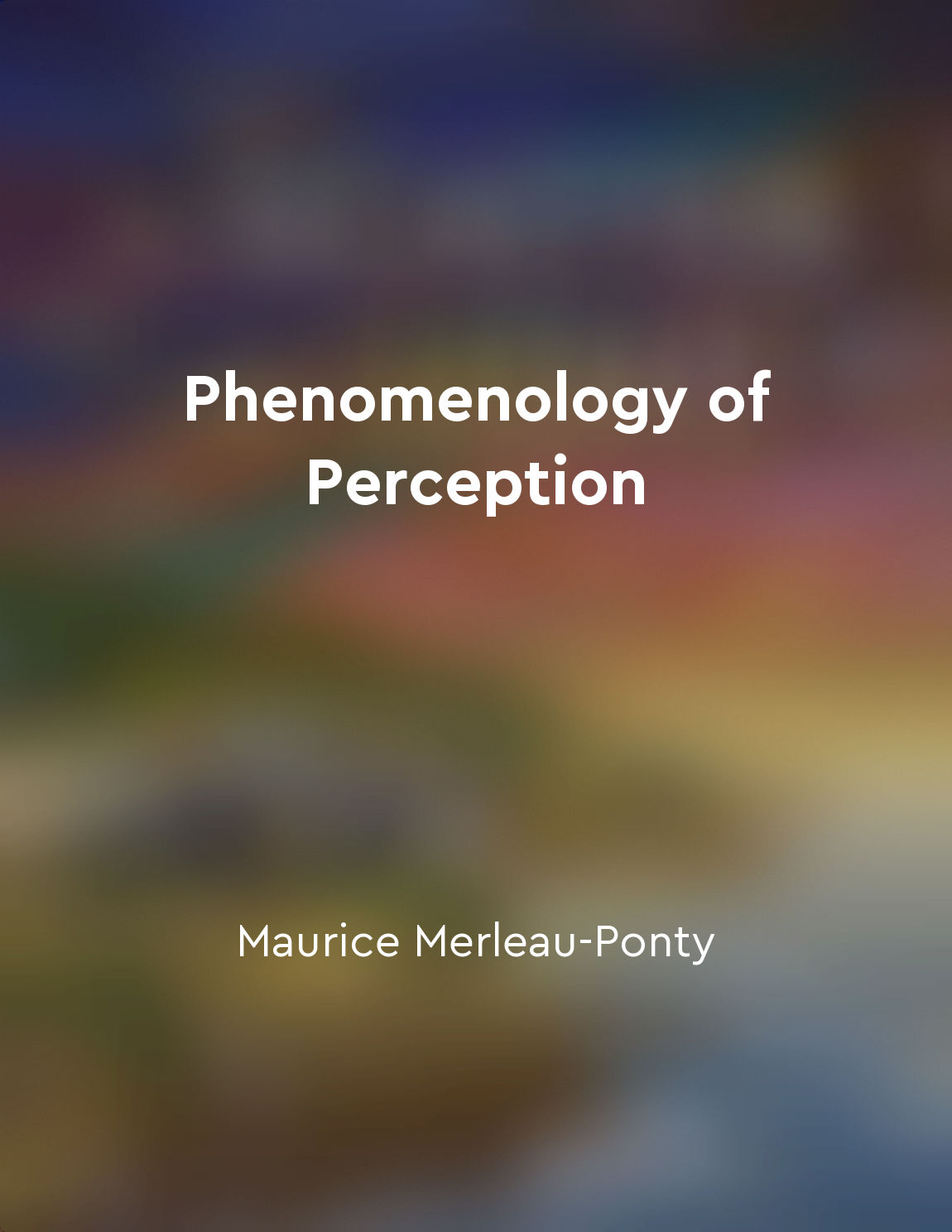Perception is always situated and contextual from "summary" of Phenomenology of Perception by Maurice Merleau-Ponty
Perception, as we experience it, is never detached from the context in which it occurs. Our understanding of the world is always situated within a particular environment, shaped by our bodily existence and the relationships we have with the world around us. This means that our perception is always influenced by the specific circumstances in which we find ourselves. Our senses are not passive receptors of information but actively engage with the world in which we are situated. We do not simply see objects or hear sounds; rather, our perception is always mediated by our bodily presence and the ways in which we interact with our surroundings. This means that our perception is always intertwined with our actions and movements in the world. The context in which we perceive things also plays a crucial role in shaping our understanding of them. The meaning of an object or event is not fixed but is always contingent upon the context in which it is situated. This means that our perception is always embedded within a larger framework of meaning that is shaped by our cultural, social, and historical context. Moreover, our perception is not only influenced by the immediate context in which we find ourselves but is also shaped by our past experiences and memories. Our understanding of the world is always informed by the ways in which we have encountered similar situations in the past, which means that our perception is always situated within a broader temporal framework. In this way, perception is not simply a matter of passively receiving sensory information but is an active and dynamic process that is always situated within a particular context. Our understanding of the world is always shaped by the ways in which we are situated within it, and our perception is always contingent upon the specific circumstances in which we find ourselves.Similar Posts
Storytelling: capturing attention through narratives
Storytelling is a powerful tool that allows you to captivate the attention of your audience through the use of narratives. By t...

The importance of sensory acuity in communication
The importance of sensory acuity in communication cannot be overstated. Sensory acuity refers to the ability to notice and inte...
Education is a powerful tool for social change
Education, in my view, holds the key to unlocking the chains of ignorance and prejudice that have bound humanity for far too lo...
Marxism critiques the systems of power and oppression in society
Marxism is a philosophy that delves deeply into the structures of power and control that exist within societies. It seeks to un...
Intuitions without concepts are blind
Intuitions without concepts are blind. Without concepts, intuitions lack the ability to be understood or make sense of the worl...

Art allows us to transcend the limitations of the will
Art, according to Schopenhauer, serves as a means for individuals to rise above the confines of their own will. The will, he ar...
Phenomenology seeks to uncover the essence of things
Phenomenology, as a philosophical method, is concerned with the study of the structures of consciousness and the ways in which ...
Realworld examples illustrate concepts effectively
The use of real-world examples to explain concepts is a highly effective way to help students understand complex ideas. By conn...
Problem of Idealism
The Problem of Idealism arises from the difficulty of reconciling the existence of physical objects with the fact that they are...
Start paying attention to body language
To truly understand what someone is thinking or feeling, you need to pay attention to their body language. This is because our ...

